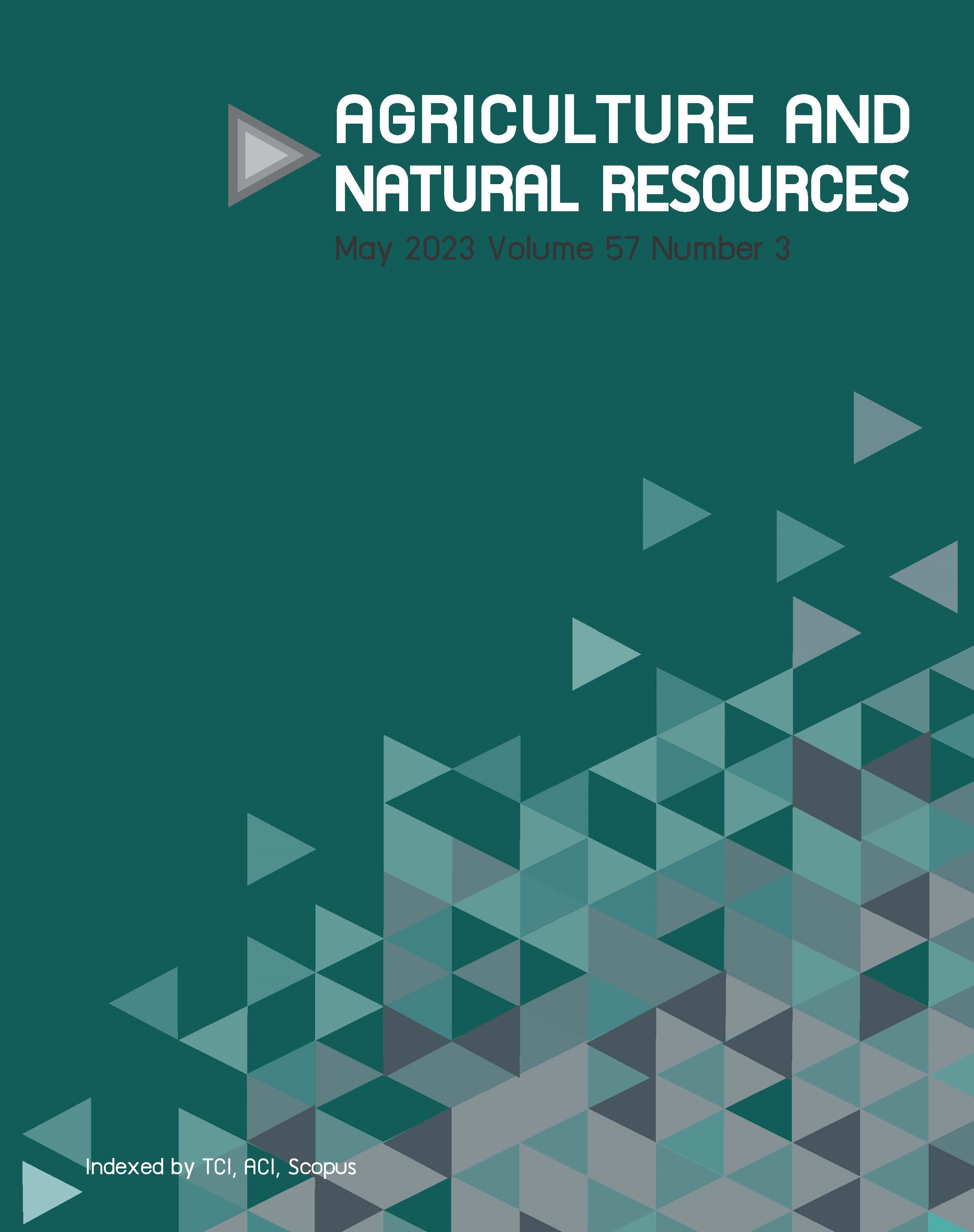Effects of alternate wetting and drying water management and rice straw incorporation for sustainable rice production under dry season conditions in central Thailand
Keywords:
Alternate wetting and drying (AWD), water management, Dry season, Rice straw incorporation, Sustainable rice productionAbstract
Importance of the work: Saving water and preventing small particulate matter emissions generated from the open burning of rice straw are essential for sustainable rice production in Thailand.
Objectives: To investigate the effects of alternate wetting and drying (AWD) and rice straw and cattle manure incorporation in the dry season.
Materials and Methods: Pathum Thani 1 rice seedlings were transplanted to the paddy in January and harvested in April 2022. Plant growth parameters and grain yield data were collected from four treatments with four replications. The redox potential (Eh) values of
paddy water were measured, and costs were recorded.
Results: AWD water-saving technology with extra rice straw and cattle manure incorporation increased the grain yield by 64%. In contrast, even if the chemical fertilizer and rice straw rates were halved, the grain yield increased by 51% compared to continuously flooded (CF) paddy without rice straw and cattle manure. If chemical fertilizers were replaced with organic fertilizer, the grain yield could be maintained at the same level as for CF paddy. However, plant height, soil plant analysis development value and tiller number were significantly lower than those of CF. Due to the extra rice straw and cattle manure, the cost of the AWD treatment was higher; however, the higher grain yields offset this in determining the cost-benefit ratios.
Main finding: The integrated effects of rice straw and AWD reduced chemical fertilizers usage. Fewer chemical fertilizers needed to be applied by incorporating rice straw and manure under AWD as ways to achieve sustainable rice production in the dry season in central Thailand.
Downloads
Published
How to Cite
Issue
Section
License
Copyright (c) 2023 Kasetsart Universityonline 2452-316X print 2468-1458/Copyright © 2022. This is an open access article under the CC BY-NC-ND license (http://creativecommons.org/licenses/by-nc-nd/4.0/),
production and hosting by Kasetsart University of Research and Development Institute on behalf of Kasetsart University.







